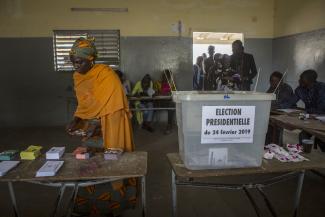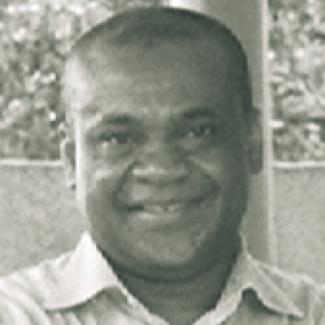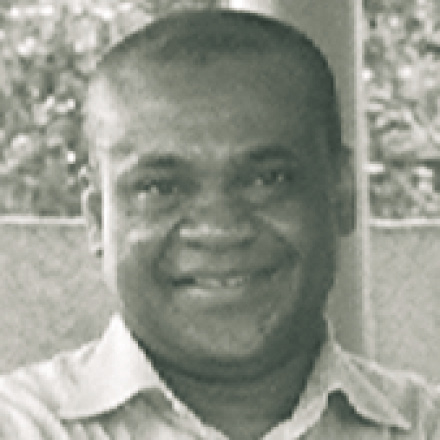Elections
Democracy in West Africa

West Africa’s democratic tradition has an uneven history – and, judging by recent elections, similarly uneven prospects. The three West African nations that held national elections in recent months – Senegal, Benin and Nigeria – began their paths to democracy at different times: nearly 60 years ago in Senegal, 30 years ago in Benin and 20 years ago in Nigeria.
Perhaps unsurprisingly, the country with the longest democratic tradition, Senegal, has made the most progress, and the country with the shortest democratic experience, Nigeria, appears to face the biggest challenges. In all three countries, however, considerable work remains to be done for democracy to fully take hold.
Senegal
To begin with, the good news: Senegal, which has developed its democratic tradition since shortly after its independence from France in 1960, is widely regarded as Africa’s poster child for democratic rule. It has a history of peaceful elections and transparent government. Democracy in Senegal also has strong support from the voters: according to the BBC, 66 % of eligible voters cast their ballots in the 24 February election. They returned incumbent President Macky Sall to office, with 58 % of the vote in the first round.
Yet there are flaws in this democracy, as the recent election shows. Two leading opponents of President Sall, Khalifa Sall (no relation to the president) and Karim Wade, the son of a former president, were barred from running after having been charged with corruption. The result of their exclusion was that two major political parties, the Socialist Party and the Senegalese Democratic Party, did not field candidates in this election. The two excluded candidates say the charges were politically motivated.
After the election, former Prime Minister Idrissa Seck and other leading opposition politicians accused the president of manipulating the results.
A former regional representative of Amnesty International, Alioune Tine, summed up the situation in an interview with a local newspaper: “Our major failure is when presidential contenders of the opposition parties refuse to concede defeat because of alleged vote rigging.” He bemoaned that opponents refused to recognise the president as the clear winner of the contest. “We are in a stalemate here,” he said, “we must end this.” The controversy has not died down however.
In May, the Senegalese parliament upheld a presidential decree abolishing the post of prime minister. Opposition parties called the move unconstitutional and accused the president of amassing too much power in his own hands.
Political analysts warn that the controversy could escalate from an inter-party rivalry to a tribal dispute. They note that the president won by a landslide in his stronghold in northern and central Senegal, home to the Pulaar and the Serere people, but had a weaker showing elsewhere, where other ethnic communities predominate. For Senegal, they say, it would be a distinct step backwards if tribal resentment became politically relevant. Meanwhile, President Macky Sall has called for national dialogue, but some opposition leaders remain unconvinced.
Benin
Benin is officially a representative democratic republic and was in the forefront of Africa’s democratic revival in the early 1990s. Its politics are pluralistic to a fault: according to estimates, Benin had some 200 political parties in 2018.
But pluralism suffered a reversal in the parliamentary elections that took place on 28 April. Major opposition parties were barred for failing to follow new and cumbersome electoral laws. Under the new laws that had been passed in July 2018, parties must meet an electoral threshold of 10 % of the national vote to enter parliament. Moreover, they must pay a deposit of 249 million CFA francs (€ 380,000) to be listed on the ballot, up from 8.3 million CFA francs. As a result, all the newly elected 83 members of parliament are now aligned with Patrice Talon, the incumbent head of state.
In protest to the restrictive rules, voters shunned the election in large numbers. The National Electoral Commission said that only 23 % of the 5 million eligible voters went to the polls, but the Constitutional Court put the figure at a little more than 27 %. Whatever the official turnout, it is considered extremely low. In fact, it is the lowest ever recorded since December 1990, when Benin adopted its new Constitution in a referendum.
The election itself was marred by problems. Benin was totally disconnected from the internet on election day. This meant that communication via social networks, among other channels, was not possible. Riots broke out after former President Thomas Boni Yayi called for an election boycott. People suspected of violent action were detained without a warrant. Angry mobs set property ablaze, and security forces responded with deadly force. Several young men and women were killed during anti-government demonstrations. Moreover, press freedom is increasingly being restricted, and at least one journalist was detained for several days for an article that he wrote about Benin’s ballooning foreign debt. According to Reporters without Borders, an international non-governmental organisation based in France, Benin’s ranking for press freedom has dropped from 84th to 96th in just a matter of months. As for former president Boni Yayi, security forces have sealed off his residence in Cotonou. Some say he has been virtually placed under house arrest.
President Patrice Talon and the main opposition parties are now locked in a constitutional showdown over the exclusion of the opposition parties from the April election. The two major opposition parties, the Union Sociale Libérale (USL) and the Forces Cauris pour un Bénin Emergent (FCBE) say the 83 new members of parliament are “illegitimate and illegal representatives of the people of Benin”.
Addressing the nation on 20 May, Talon said that he deeply regretted the scenes of violence that led to several deaths and injuries. He asked the newly installed parliament to amend the controversial electoral law so that opposition parties could contest next year’s local and municipal elections. The president has also called for national dialogue to sort out the country’s problems, but key party leaders like Eric Houndete and Candide Azannai have flatly turned down the offer.
This situation leaves open the question of how effectively a parliament that is beholden to the president can check and balance presidential powers. It is common practice in Benin for a sitting president to try to amend the 1990 constitution to amass more power. Previous attempts failed due to opposition in parliament. Now, however, there is no strong opposition party in parliament, and the president has sweeping power. He has virtual veto power over policymaking, can deny an institution funding and can appoint the heads of state institutions. This does not bode well for true democratic rule.
Nigeria
Nigeria has officially been a democracy for 20 years. The country became independent from Britain in 1960, but what followed were decades of brutal military coups, countercoups and even civil war.
Nigeria has held six presidential elections since 1999. In the most recent election, incumbent President Muhammadu Buhari of the All Progressives Congress (APC) was re-elected for another four years.
But this election was far from a perfect example of democracy at work. To begin with, the Independent National Electoral Commission (INEC) postponed the voting, which was originally set for 16 February, by one week on short notice, arguing it faced logistical problems. One implication of that step was that many people were denied their chance to vote. To take part, they had travelled home to their constituencies for the weekend, but could not afford to make the same trip twice. Offices of the INEC were hit by arson attacks.
The election was marked by a depressingly low turnout: according to the BBC, only a third of the 73 million eligible voters appeared at the polls. That was the lowest rate in 20 years. Apparently, masses of people no longer believed that voting would make a difference. The election was also marred by violence. Afterwards, opposition parties filed legal challenges, but to no avail.
In the Economist Intelligence Unit’s Democracy Index for 2018, Nigeria ranks 108th out of 167 countries, compared to 81 for Benin and 73 for Senegal. Nigeria faces many challenges simultaneously, along with the task of strengthening its democracy. Islamist extremism is a problem, and security is fragile. Poverty and massive migration are facts of daily life.
Corruption in politics remains a barrier to solving these problems. Politicians have turned public offices into cash cows to enrich themselves. Public spending has soared; in 2018, for example, the Senate spent close to 40 billion Naira (approximately € 100 million). The budget of this legislative body is larger than those of some of Nigeria’s 36 states. This fact shows that power is concentrated at the federal level. Democracy would benefit from stronger and better funded states.
Karim Okanla is a media scholar and freelance author based in Benin.
karimokanla@yahoo.com









